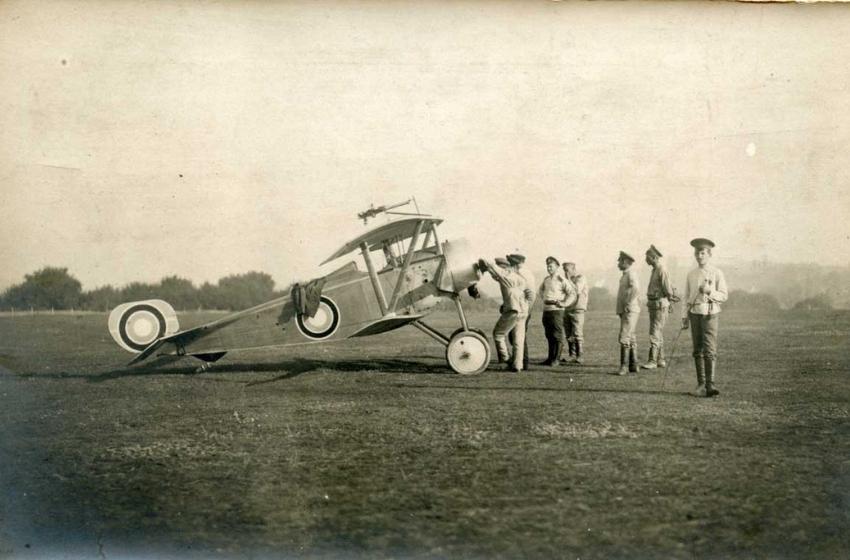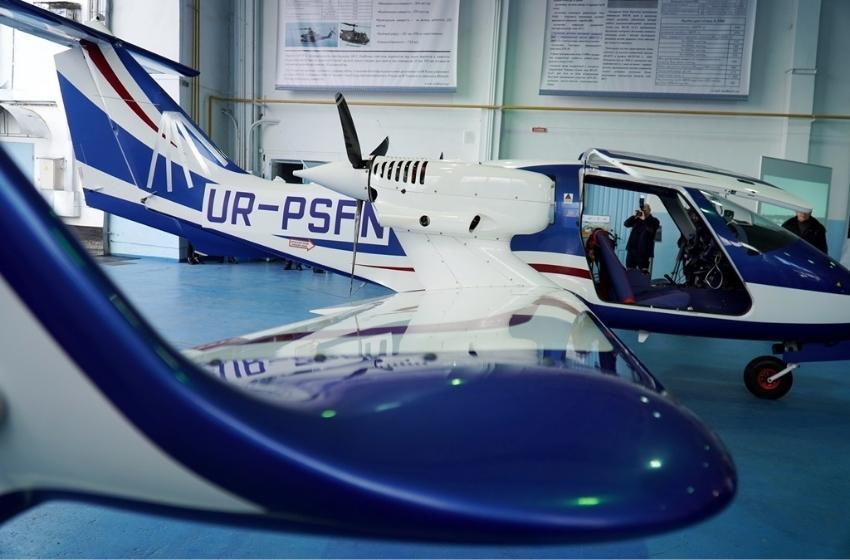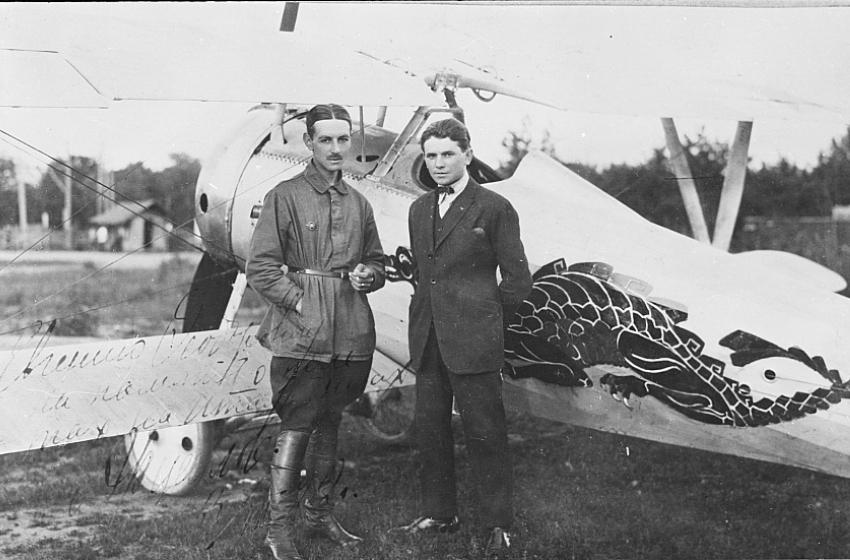On November 24, 1910, the opening ceremony of the Sevastopol Aviation Officer School took place near Sevastopol. We decided to recall the names and destinies of the most famous teachers and patrons of the aviation officer school because there were also from Odessa.
On November 24, 1910, the opening ceremony of the Sevastopol Aviation Officer School was held at the Kulikovo Pole airfield near Sevastopol. It became the second after the Gatchina Aviation School in the Russian Empire and the first in the country to specialise in the training of military pilots.
The school was created by the special order of Nicholas II (the emperor was present during the ceremonial presentation of diplomas to its first graduates in October 1911), and its patron was the chief of Russian aviation, Grand Duke Alexander Mikhailovich. The school continued its history even after the revolution, although it changed its name to the Kachin Military Pilot School.
However, then, at the dawn of its existence, the cadets had only eight aircraft, the speed of the fastest of which barely reached 70 km/h. But in the training of the first domestic aviators, who were soon to prove themselves on the fronts of the First World War, the pilots who stood at the origins of the development of domestic aeronautics took part.

Efimov: the pioneer of Russian aviation
The first Russian aviator Mikhail Efimov was offered to lead the newly created school. The son of a locksmith, a graduate of the Odessa Railway School, he became the champion of Russia in motorcycling in 1908 and 1909. However, in 1909, having made a glider flight for the first time, he made it possible to go to France to train as a pilot. The money for his studies was provided by Baron Ivan Ksidias - later, Efimov had to work it out for three years.
In April 1910, Efimov won the prestigious competition in Nice, France, using the prize money to pay off the debt and buy his own plane. Later, he also successfully performed at competitions in Verona, Rouen, Reims, and Budapest. In the fall he appeared at the All-Russian aeronautics festival in St. Petersburg, where he met the founder of Russian aviation, Nikolai Zhukovsky. He was offered to head the newly created flight school in Sevastopol, and Efimov accepted the offer. After the outbreak of the First World War, he volunteered for the front, where, as a hunter-pilot, he carried out dangerous reconnaissance raids behind enemy lines.
In 1917, after the February Revolution, the first Russian aviator joined the Bolsheviks and became a member of the Seaplane Committee in Crimea. In 1919, when a landing of the White Army landed on the peninsula, 28-year-old Mikhail Efimov tried to flee. While attempting to leave Crimea, he was killed.

Artseulov: the first deliberate "spin"
Among the first cadets and teachers of the school was the Russian pilot Konstantin Artseulov. A former sailor, Artseulov graduated from the Naval Corps in St. Petersburg. He received an aviator diploma in 1911 and began working as an instructor at the aviation officer school immediately after that. Then he was 20 years old.
Artseulov was the grandson of the famous marine painter Ivan Aivazovsky. In addition to military affairs, he was fond of painting and was known as a gifted artist. However, he became famous primarily in the aviation environment.
In 1915, Artseulov was the first in the world to perform one of the most dangerous aerobatics: he deliberately put the plane into a spin, and nowadays threatens inexperienced pilots with a loss of control over the aircraft and an almost inevitable crash, after which he independently brought the plane into level flight. After Artseulov proved that an airplane in a spin could be controlled, this figure was introduced into the programme of flight schools. The ability to get the aircraft out of an uncontrolled fall subsequently saved the lives of more than one generation of cadets.

Andreadi: first records of range and duration of flight
Instructor of the Sevastopol Aviation Officer School Dmitry Andreadi came to aviation, already being an experienced officer - for his participation in the Russo-Japanese War in 1904-1905, during which he commanded infantry units, Andreadi was awarded three orders. In July 1911, he passed the pilot's exams, and in August, he set the national record for the duration of a flight with a passenger - 2 hours 35 minutes.
At the beginning of 1912, Andreadi set his second record, now in flight range, flying the route Sevastopol - St.Petersburg with intermediate landings in Kherson, Odessa, Kremenchug, Poltava, Kharkov and Moscow. In 1914, Dmitry Andreadi died in a crash during a training flight. He was 36 years old.

Grand Duke Alexander Mikhailovich: patron saint of Russian aviation
The brother-in-law and close friend of Emperor Nicholas II, Grand Duke Alexander Mikhailovich, became the chief of Russian aviation and a high-ranking patron of the Sevastopol Aviation Officer School.
A professional sailor who graduated from the Naval School, who made a round-the-world voyage in 1886, commanded, among other things, the Black Sea battleship "Rostislav," it was he who in 1909 initiated work on the creation of domestic aviation. Then, at a meeting of the Imperial Society of Shipping, at which the financing of the restoration of the Russian fleet after the war of 1904-1905 was to be discussed, he turned to its participants with a proposal instead to use the committee's funds to create an air fleet.
Soon after that, in 1910, domestic sports aviation made a rapid leap forward, the first pilot school was opened in Gatchina, and after it, an officer flight school began its work in Sevastopol.
In 1917, when all the Romanovs were dismissed from the army, Alexander Mikhailovich settled on his estate in Crimea. Later he emigrated to Paris, where until the end of his life, he was the honorary chairman of the Union of Russian military pilots and became the author of several books. The chief of Russian aviation died in France in 1933 at the age of 67.
By the materials of Izvestiya





















